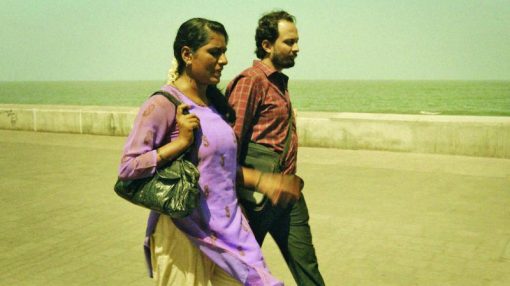
“In his famous nazm, “Mujhse pehli si mohabbat”, Faiz Ahmad Faiz asks several questions. Can love and politics exist independently? Was there ever such a thing as “the one”? Is the desire of an individual bigger than the pain of the collective? Does love mean bliss or a willing suspension of disbelief? If love and violence are two sides of the same coin? Is your lover a stranger? Jaoon Kahan Bata Ae Dil encompasses this entire spectrum of human emotions, all in a (cinematic) day’s time!
Many recent Hindi films have drawn from Faiz Ahmad Faiz’s revolutionary poetry to talk about love: Imtiaz Ali’s Tamasha, Karan Johar’s Ae Dil Hai Mushkil, and Vishal Bharadwaj’s Haider among others. But if there is a film that truly gets to the gut of the revolutionary poet’s oeuvre (without even making any direct allusions), bursts it open, and lets what’s left inside to “pour out like red, veiny egg yolk”, it is Aadish Keluskar’s Jaoon Kahan Bata Ae Dil.
Rightly termed as an “anti-romantic film”, Jaoon Kahan is an incredible example of a film, based on the seemingly trivial genre of a love story, with far-ranging tentacles that slap commentary on each pole upholding a “civilised” society: religion, marriage, monogamy, democracy, capitalism, even the arts. The film, quite rightly, uses dialogue to generate this commentary. In fact, at least ninety-percent of the cinematic time is accounted for by the film’s (anti) hero, Rohit Kokate’s continuous jarring rants – a social commentary in a manner of the monologue that is otherwise only seen in Hindi cinema through a character’s courtroom testimony. It reminds one of an angry ‘80s Nana Patekar. But unlike the indignant working class-rage of Patekar, Kokate’s frustration is self-gratifying, narcissistic, and ineffectual of a larger impact.
Visceral, evocative and provocative; both literally: showing sweat, blood and bodily fluids on the screen, and metaphorically: making it impossible for the audience to maintain an objective distance, Jaoon Kahan is what happens when a volcano simmering with repression finally explodes. For better or worse, the casualties of the washout will not be the Indian bourgeoisie, for the film in all possibility is unlikely to pass the censor board.
Unlike Jonaki (winner of the Silver Gateway Award MAMI Film Festival 2018), which negates all definitions of reality, or Mehsampur (Winner of the Gold Award), which refuses to offer the truth, Jaoon Kahan advances in the pursuit of “the truth”. But how much truth is too much truth?
The film has unnamed characters, pointing to part ambiguous-part essentialist everyman condition, and a fair-skinned female actor (Khushboo Upadhyay) made darker by make-up, to make a point perhaps. But when the body of a woman becomes another token for representing ordinariness, the film starts bordering on a vulgar, almost fetishising spectacle serving the indulgent fantasies of the filmmaker. Breaching the lines between consent and violence, there is almost a proud staccato that Kokate’s character enjoys when referring to pussy, dick, vagina and its various connotations. This incisive rhythm also informs the film’s beat of immediate tension and release.
The aesthetic is befittingly nebulous. Jaaon Kahan opens with landscape shots of the couple walking through Marine Drive in yellow tinted frames which are neither dhoop nor chhaon (sunshine nor shade), adding a murky layer to the narrative; and goes on to become dingy, dim-lit and claustrophobic, with a freestyle, home-video (porn-like) kind of a visual grammar. The cinematic grammar of the film is thus layered remarkably. Like Ravish Kumar’s sketches on Delhi, Ishq mein Shehar Hona, Jaaon Kahan is a sketch of a Bombay within the Bombay; the Bombay you know and the Bombay you would much rather not. The couple in Jaaon Kahan — like the many other couples without the privacy of a home in Bombay— resort to spending their dates walking on Marine Drive; eating at a cheap Irani café; making out in the back of a ‘kaali-peeli’; and checking into a lodge that rents out rooms by the hour.
In a choice between the beautiful and the ugly, the film always chooses the ugly. It’s not a film that sanitises love and wraps it up in a scented Archies greeting card; it is a film that shreds the card and the viewer’s skin alike.
Jaoon Kahan Bata Ae Dil won the Young Critics Award at the MAMI Film Festival 2018.
Watch the trailer of the film here.
Read more:
Jonaki: Part Dream, Part Waking
“How do we switch off that light in the room?”




